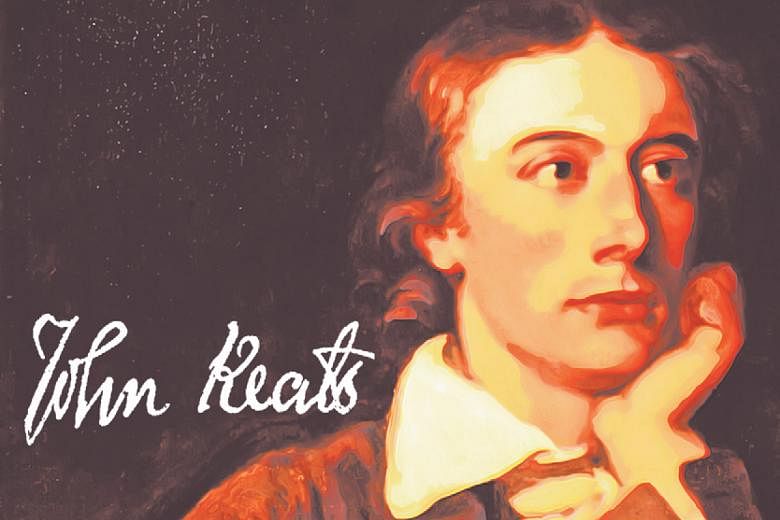In my teens, I lived through a few years of great sadness and a sense of dread.
It is probably not uncommon for teen girls to become a little depressed with existential angst, but I could not bear the thought of how everything had to end. Every day had to turn into night, every second pass, every living thing die.
I found some solace in the poems of English romantic John Keats, whose preoccupation with exactly those themes of impermanence - and the hope of transcendence through art - spoke so clearly and precisely to me, and articulated perfectly how I felt.
Keats, if anyone, was my first great literary love.
Eventually, I outgrew the adolescent sadness. Experience has that ability to give you resilience. Life moved on and I stopped reading poetry once I no longer had to for English class.
But I reacquainted myself with Keats on a recent trip to the United Kingdom, while surfing Google Maps to find something to do before our Harry Potter Studio Tour in Watford (highly recommended for movie fans).
The little icon said Keats' House.
Whatever else we do, I told my family, I have to go there.
Keats had rented a bedroom and parlour in the house, located in a lovely spot near Hampstead Heath, from 1818 until his untimely death in 1821, aged 25.
At 25, I was still a kid with no clue about what I wanted. By then, he had produced some of the greatest poems in the English language, despite (or maybe because of) great personal tragedy and hardship.
His father died when he was young, which resulted in severe financial difficulties for the family. Though Keats had a good education in a progressive school, he had few prospects. He trained to be a surgeon at Guy's Hospital (in those days, it was not the profession it is today) but eventually gave it up to be a poet full time.
In this, he persevered, despite withering reviews by critics. He was tougher than others have given him credit for, and he was convinced of the importance of the work of writing.
And because of his illness, which his medical training told him was terminal, he never married the love of his life, Fanny Brawne.
Brawne also eventually moved to Wentworth Place, which was shared by two families. The lovers were separated by a dividing wall. It is little wonder his poetry is full of heartbreak.
In the end, I did not have much time to make my homage, but all the memorabilia to make any Keats fan happy is there.
I was glad to see groups of school girls. I wondered, would reading Keats now be the same as it was when I was 16?
I think I was fortunate to have encountered him in my formative years. The intensity of feeling and experience as a young person, in my case, did not last into adulthood.
Reading Keats was a deeply emotional experience. I lived the ripe hanging fruit in To Autumn and I felt the shadow of death that lay beneath. I ached with all the yearning of his words for what cannot be - time to stand still, even for a second.
It is not an exaggeration to say that Keats - and so many other fine writers I have had the privilege of encountering - showed me the human condition, and they still do today.
What I regret is not giving more of a chance to Singapore writers; especially those early brave souls who ignored the naysayers to take us to places we did not know existed.
But it is not too late to plug that gap. We returned recently to North Carolina from Singapore with a clutch of new books and the best thing: a handy online account with the National Library Board that lets one borrow books on a mobile device.
My first download was Catherine Lim's The Serpent's Tooth. I am also glad to say one of my daughters is reading Amanda Lee Koe's The Ministry Of Moral Panic and my husband is embarking on Tan Tarn How's Six Plays.
With far more than 50 years of history, Singapore's literary writing, so long in the background, deserves to come into the mainstream.
Now Epigram Books founder Edmund Wee is offering a $20,000 Fiction Prize for the best manuscript of 2015. He has convened a judging panel and I fervently hope he gets the support he needs.
To understand a place, or a people, look to its writers and poets, its artists, songwriters and playmakers.
It pains me that Keats died so hard of consumption in a foreign land, with his love so far away and his hopes and dreams ruined. But, like the title of one of his poems, his short life burned like a bright star.
He will never know it, but it offered redemption to a girl more than 150 years later, in a place that in his time was just being discovered by a fellowman, and which came to be called Singapore.


